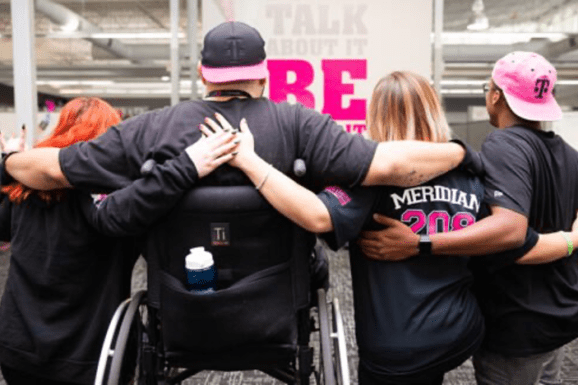Annie Dillard once said, “How we spend our days is, of course, how we spend our lives.”
Whether we agree with it or not, our jobs have an immense impact on our lives. Americans spend a lot of time and energy every day working. In fact, the average person will spend 90,000 hours at work over a lifetime. This is approximately one-third one’s life. As a result, it is important, and essential, to address mental health in the workplace.
One company has recently taken steps to address this challenge. T-Mobile, under the leadership of John Freier, Executive Vice President of Consumer Markets, is creating a space where employees, managers, and leaders can easily find the help they need to better support family, friends, and colleagues.
In a blog post discussing the need for a better corporate approach to dealing with mental health, Freier talks about the health, safety, and wellbeing of his employees as his personal responsibility. He writes, “For too long, the topic of mental health has been cloaked in shame and silence. As someone who’s experienced firsthand the damage done by depression and suicide in his own family, I’m actively working to open up the conversation.”
Freier’s vulnerability is admirable. In today’s world, all stakeholders demand leaders who are not only confident but are transparent and trustworthy.
He goes on to say, “Thankfully, as a society, mental health is no longer a taboo topic. And that goes for the workplace — we understand that people can’t just turn their emotions on or off when they show up to work. As a leader, I recognize that my responsibility is to open the dialogue and listen.” Frier hosts regular Town Halls with 5,000-plus managers to ensure an “open-eared approach cascades to every corner of my team”.
Some of T-Mobile’s mental health initiatives include:
- T-Mobile offers a wellbeing program called LiveMagenta, available to all employees and their families 24/7. LiveMagenta is a hub of confidential access to mental health resources. Whether that’s a life coach, mental health provider or crisis counselor.
- T-Mobile’s partnership with the FCC on the 988 hotline is just its latest initiative to support mental health at the federal level.
- Last November, T-Mobile signed the Department of Veterans Affairs’ “Pledge to Prioritize Mental Health and Emotional Wellbeing in the Workplace.”
Unaddressed mental health, or brain health, issues hold back entire organizations. We must support our peers and employees. As Freier says, “when it comes to mental health, we can always do better — and we’re just getting started.”
